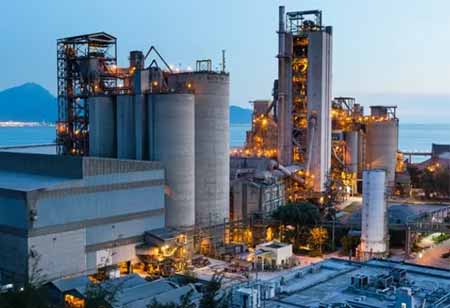Some distributors even go one step forward and provide the production of customized formulations for customers through their research laboratories.
A chemical distributor operates just like any other distributor. The distributor purchases goods from manufacturers, such as chemicals, and sells them to their customers.
What are the benefits of buying from a distributor?
Because of the large storage capacities, the distributor can still provide chemicals even if the manufacturer is already sold out. For instance, when the production stops because of maintenance grounds or they have to announce a force majeure due to unforeseen circumstances. Here, the distributor can provide their customers with specific security of supply. This is feasible because Distributors frequently have exceeding one product in their file of the same chemical. Depending on the customer's requirements, replacing the original substance can be simple or more difficult.
It is very effortless for a good distributor to substitute the former product with an alternative one. Sometimes it is even feasible to get the same substance from the distributor, just a product from another manufacturer. With this flexibility, the distributor adds value for its customers. In our supermarket instance, this would imply that we as a customer just buy the milk as previously from the supermarket, but we take a distinct brand as we bought before.
A chemical distributor operates just like any other distributor
What value-added services do distributors provide?
Numerous distributors provide services that go beyond this primary function. We name these services value-added services. An instance is the mixing and blending of chemicals previously delivered. This has the benefit that customers don't have to fuse the chemicals themselves. This service saves your business time, and money and the cumbersome managing of the individual components. Mixing chemicals need a tank in which the chemicals are combined to react or create a physical solution. You can match this to cooking at home and stirring your ingredients in the pot to prepare your meal. However, it is much bigger, and the chemicals must be completely mixed in the chemical reactor.
Chemical distributors participate in research and development.
Some distributors even go one step forward and provide the production of customized formulations for customers through their research laboratories. Therefore, another service is researching and developing specific solutions for their customers. These solutions can vary based on the industries the distributor is specialized in.
The next point, quality management, also concerns the laboratory. This is a crucial part of the selling process of chemicals. Contamination, particularly in the food and pharmaceutical industries, can lead to costly cleaning and, in the worst instance, the loss of the complete production volume. Thus, only high-purity chemicals are utilized in these quality-sensitive industries.
And what takes place if a chemical won't be sold any longer?
If so, the distributor's sales team can collectively search for a new solution with the customer. Tests can be performed at the customer's site, and the distributor helps the customer with his proficiency in the different products and applications. For this purpose, chemists who are familiar with the product portfolio and can advise customers are often hired.
What about modern products and how to sell them?
For fresh product launches, distributors can also support the other edge of the supply chain. Distributors operate with manufacturers to record new products at all relevant authorities (e.g., REACH, BRP, TSCA, etc.) and bring them to the market. For manufacturers, distributors present a favorable supplement to their sales team, which can vary in strength depending on the company. Thus, distributors are an extra sales channel, which lessens manufacturers' reliance on their own sales force. Some manufacturers may not even be competent to afford a sales force. Specifically for distributors active on single continents such as Europe, Asia, America, or even globally, this makes the process to the market much more comfortable for the manufacturer.
Conclusion
Distributors provide different benefits and can be beneficial for both customers and manufacturers. Ultimately, we can conclude that the more dedicated a distributor is and the better the services match your requirements, the better it is for you to maintain the selected company as a long-term business partner. Such a relationship can beneficially affect and help grow and organize your business for the future.

